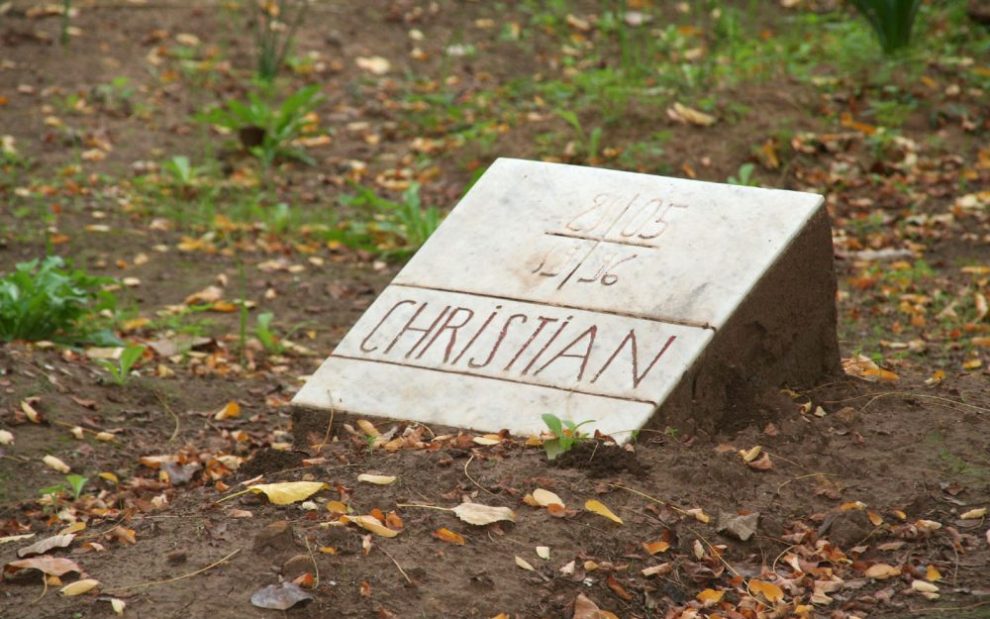“To love God means to love all [God’s] children as brothers. Muslims and Jews know that when we don’t follow these demands, we betray our ideal as Christians.” —Dom Christian de Chergé, O.C.S.O
My friend the kindergarten teacher was talking about her favorite student, a boy who was from Morocco. She had asked his mother for the words to the “Good Morning” song in Arabic, and he shivered with delight as the whole class sang in his language. “Christian de Chergé would love it,” I thought.
I had that same thought, “Christian would love it,” as a spirituality group I lead toured our local mosque. Our pastor has talked about the fact that we tend to hang out with people who look, act, talk, and think like we do. Yet the gospel clearly calls us beyond our comfort zones. Jesus often reached out to those different from himself: the Samaritan woman, the Canaanite woman, the Roman whose servant he healed.
So 12 curious Catholic women covered our heads with scarves and listened, fascinated, as our guide described Muslim worship and practice. We were impressed by her devotion to Allah, her dedication to praying five times a day, and her struggle to uphold strict values (no dating, no alcohol, and intense fasting during Ramadan).
Like many people, I discovered Dom Christian in the French film Of Gods and Men (Sony Pictures). Audiences to whom I’ve shown an excerpt—the “last supper,” where monks drink wine and listen to “Swan Lake”—have been profoundly touched. With my curiosity kindled, I then read The Monks of Tibhirine by John Kiser (St. Martin’s). Ignorance of Islam lead me to fear; de Chergé led me to explore its richness and broaden my narrow horizons.
So who is this Christian de Chergé, who led me to the mosque and to explore some small measure of Islam? Killed by Algerian extremists in 1996, this French Trappist priest’s vibrant influence lives on, one form of immortality.
Born in France in 1937, de Chergé spent his youth in Algeria, where his parents taught him to respect Islam. His dad, a French military commander, told the kids, “Let’s not kill each other over names.” As a young adult he found that he could share God-talk more easily in Algeria than in France. One friend, Mohammed, the father of 10, who shared a common love of God, intervened when thugs aimed rifles at de Chergé. Because he defended de Chergé as a godly man, Mohammed was killed that night.
De Chergé later wrote, “In the blood shed by this friend, who was assassinated because he would not practice hatred, I knew that my call to follow Christ would be lived sooner or later in the same country that gave me a tangible sign of the greatest love possible.”
When he was preparing for the priesthood, de Chergé added intense study of the Quran. He wanted to seek “the notes that are in harmony” between Christianity and Islam, in a “both/and” spirituality.
Later, as prior at Our Lady of Atlas monastery in Tibhirine, Algeria, he created a safe space for respectful Muslim-Christian dialogue and prayer. Chapel bells mingled with the muezzin’s call to pray. The Trappists farmed, befriended local villagers, and distributed medicine to the sick. Yet as violence escalated between rebels and the government, the monks debated whether to remain, knowing they were in danger.
When one monk said, “We’re like birds on a branch—we don’t know if we’ll be leaving,” a Muslim villager gently replied: “We’re the birds. You’re the branch.” Eventually the monks came to peace with the decision to stay, realizing that they rested in God’s embrace.
Soon rebels kidnapped and killed de Chergé and six other monks. De Chergé had written a prophetic and forgiving letter three years before. He worried that his death would intensify anger toward Islam. Despite his concerns, his last testament is filled with gratitude, extending even to his “friend of the last moment.” He meant his murderer, whom he would meet in heaven “like happy thieves,” who had both stolen paradise.
If I’d ever regarded Muslims as violent religious fanatics, de Chergé helped me understand that like any religion, they have a fringe—as well as many decent members. Our tour guide in the mosque was genuinely devoted to Allah, and as she described the pillars of Islam, similarities to Catholicism were clear: monotheism, dedication to sacred texts, cleansing rituals with water, regular prayer like the Liturgy of the Hours, tithing to the poor. She explained with pride that their imam, a rabbi, and a priest had cooperated to build a prayer space at Denver’s airport. Her respect for Jesus and Mary were drawn from the Quran. I wondered if those who burned it knew what it contains.
In telling this French monk’s story, sometimes it seems difficult to keep his name Christian apart from the same word used for a compassionate follower of Jesus. But in this case, they are one and the same.
This article also appears in the February 2013 issue of U.S. Catholic (Vol. 78, No. 2). Click here to subscribe to the magazine.
Image: Wikimedia Commons/Ps2613 [CC BY SA 3.0]















Add comment